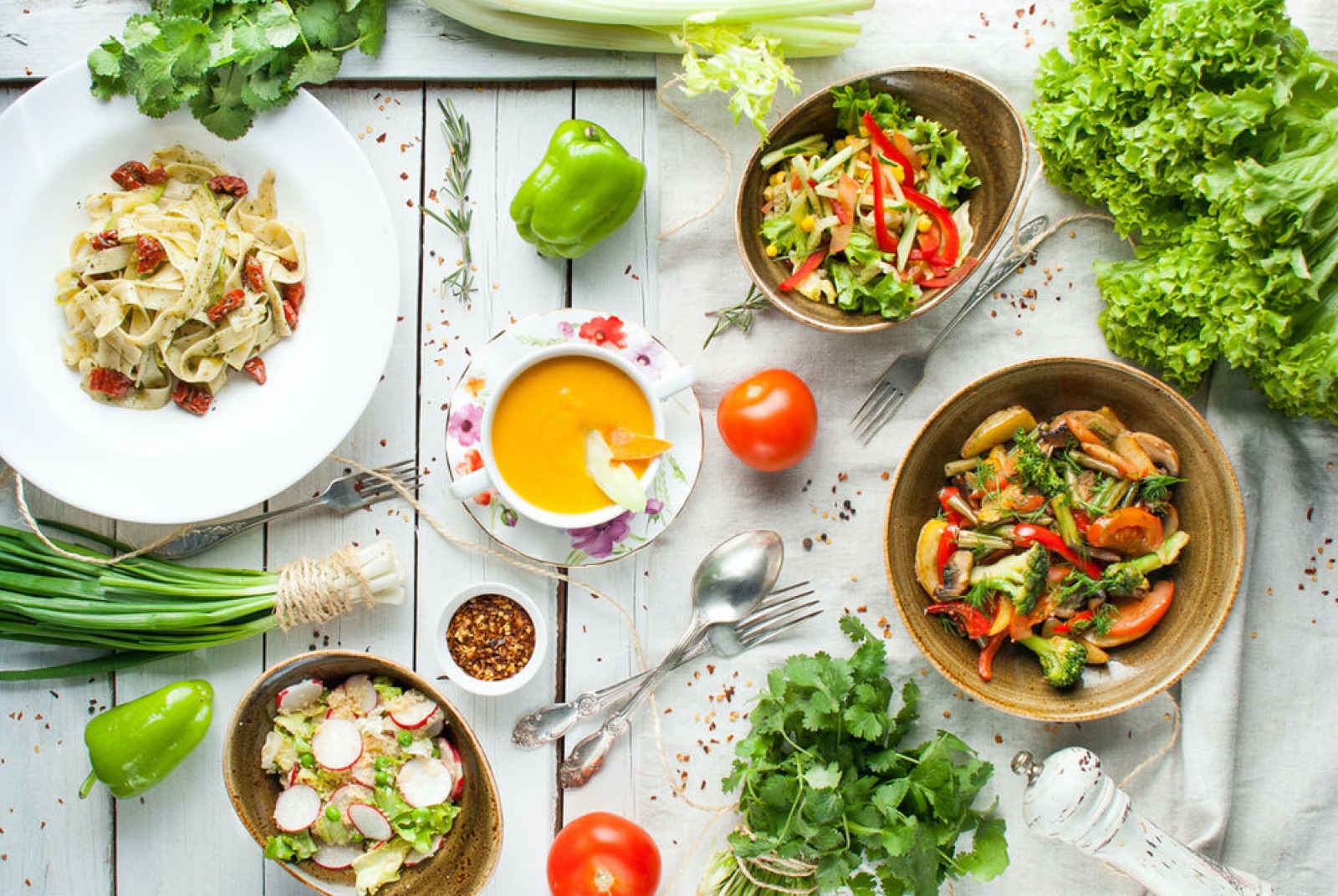LISTEN TO THIS ARTICLE:
Most research into the effects of diet on mental health focuses on depression, but diet is linked to anxiety as well. Anxiety disorders are a group of mental health conditions characterized by excessive worry, fear, or nervousness. They are the most common mental health condition. Nearly 1 in 3 Americans will struggle with anxiety at some point in their lives.
Treatment options for anxiety disorders often include a combination of psychotherapy, medication, and lifestyle changes. Cognitive-behavioral therapy (CBT) is the most common therapeutic approach and medications like selective serotonin reuptake inhibitors (SSRIs) are also very helpful. Additionally, lifestyle changes like exercise, good sleep, and stress management techniques can aid in managing anxiety.
Up until the present, this was the extent of treatment options for anxiety. Researchers Monique Aucoin ND, MSc, and Laura Lachance MD, MSc, FRCPC, sought to add to this list of remedies by exploring the role diet plays in anxiety and mental health in general. Using diet modifications as a potential remedy for anxiety has many positives. It’s accessible, cheap, and available to everyone. This research breathes new life into this field, offering people with anxiety a new source of relief.
Study discoveries
This study by Dr. Aucoin and Dr. Lachance searched existing research for any and all studies examining links between diet types and anxiety. The analysis found evidence that specific diet patterns can impact anxiety levels. In general, diets that focus on vegetables, fruit, and minimally processed foods while limiting sugar and refined grains. Diets like this include the Mediterranean diet, the anti-inflammatory diet, and high-variety diets. These were generally diets considered “healthy” by the researchers in the different studies.

Diet macronutrients and anxiety
“Macronutrients” are the major building blocks of any diet. These include protein, carbohydrates, and fats. Most people use the word “diet” to describe limiting their eating to lose weight or achieve some other health benefit. Here and in much of dietary science, however, “diet” simply means the total of all nutrients that a person consumes, regardless of their health goals. In addition to macronutrients, the human diet also includes vitamins and minerals. Vitamins are molecules that are necessary in small amounts for normal metabolism. Similarly, minerals are elements critical to human life, including calcium (Ca), phosphorus (P), potassium (K), sodium (Na), and magnesium (Mg).
Fat
Of all the diet components, fat has the most evidence relating it to anxiety. This doesn’t necessarily mean that less or more fat is automatically good or bad. It’s more complex than that. Higher intake levels of omega-3 fatty acids can help fight anxiety. In contrast, elevated levels of total fat, trans fats, and cholesterol may increase risks of anxiety.
Inflammation is a likely mediator in these processes. Inflammation is a natural immune response that helps the body fight off invaders. However, chronic inflammation lasting over an extended time is linked to the development of numerous health problems, both physical and mental. Omega-3 fatty acids help decrease inflammation, which could explain their positive impact on anxiety and mental health. In contrast, excess omega-6 fatty acids can increase levels of inflammation throughout the body. Differences like this demonstrate why subtle changes like the types of fats in a diet (rather than just the overall quantities) can impact anxiety and mental health outcomes.
Carbohydrates
Although the evidence linking carbohydrates in diet and anxiety is less powerful, it is still worth exploring. Existing research indicates that higher consumption of simple sugars with less fiber can make anxiety worse. It seems that less-regulated blood sugar levels can impact mental health in this way.
Protein
As with carbohydrates, the existing research connecting protein intake in diet and anxiety is in its early stages. For now, the link hinges on tryptophan, a key building block for the body in creating serotonin. Tryptophan is an essential amino acid, meaning it’s one of the parts of protein that the body cannot make by itself. Humans must get tryptophan from dietary sources. Current research suggests that if we don’t get enough, that could disrupt serotonin creation, leading to mental health effects like anxiety.
Vitamins and minerals
The connection between these micronutrients in our diet and anxiety comes down to how the body builds neurotransmitters in the brain. Specifically, zinc and selenium are involved in key steps in those processes. Additionally, different types of vitamin B affect DNA methylation levels, which is another relatively new area of research into the biological basis of mental illness.
Other Diet Considerations
Fruits and vegetables
Growing evidence suggests that good consumption of fruits and vegetables can protect against anxiety. This is likely due to decreased inflammation. Complex carbohydrates like those from fruits and vegetables can also help moderate blood sugar, as we discussed earlier.
Drug effects
Any substances that have a stimulating effect will increase the risk of anxiety. One the most wide spread drugs on earth, caffeine, is the most likely culprit in many cases. Decreasing caffeine intake is one of the easiest first diet changes to make in people with excess anxiety.
Gut microbiome and digestion
The gut microbiome is the vast community of microorganisms that live in our digestive tract. We’ve discussed the importance of the gut microbiome in detail before, including the critical role it plays in our mental health. A healthy gut can go a long way in contributing to good mental health and holding off symptoms of depression and anxiety. Food intolerances like celiac disease disrupt the gut, increase inflammation, and impair proper nutrient absorption. Diet adjustments like minimizing gluten intake can help reduce symptoms of mental illnesses like anxiety in affected people.
Looking forward
This is the largest study of its kind in recent years, including over 1,500 different studies examining the link between diet and anxiety. Because of the vast differences between the various studies, it’s difficult to draw many hard conclusions from this research. Definitions of “healthy diet” and assessments of anxiety differed throughout the surveyed literature. Additionally, what causes what is also up for debate in many of the relationships this study shed light on. Many of the studies weren’t set up to look for that kind of pattern, looking for correlations instead. Upcoming studies need more detail in how they assess dietary intake and how changes in diet affect anxiety levels over time. Despite these limitations, however, this research offers a telling glimpse into the future of mental health treatment.


 Learn
Learn Get News
Get News Find Help
Find Help
 Share
Share
 Share
Share
 Share
Share
 Share
Share



